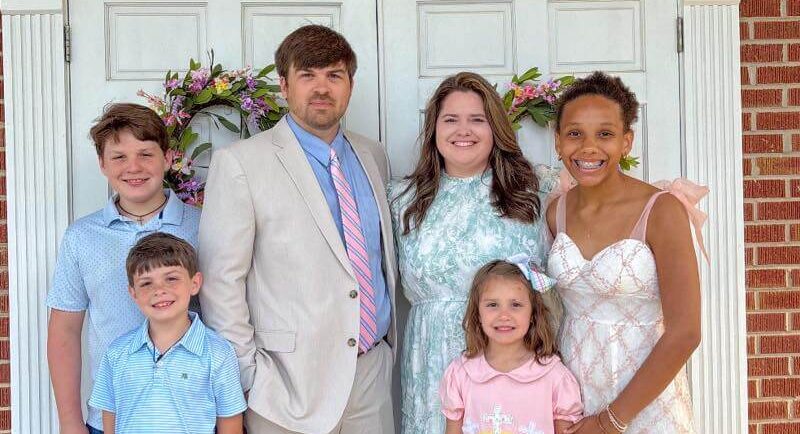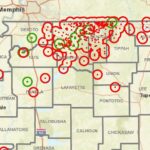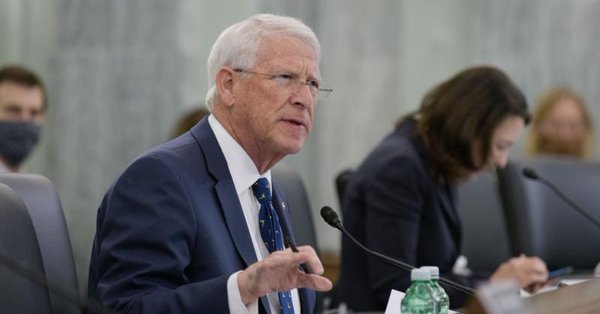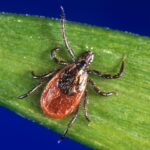Mississippi Pastor’s Wife Battles Chagas Disease as Treatment Remains Elusive
Tiplersville, MS — A Mississippi pastor’s wife is seeking urgent help and prayers after contracting Chagas disease following a likely bite from a so-called “kissing bug.” The situation has drawn attention to critical gaps in treatment availability in the United States, where the two drugs known to fight the disease are reportedly unavailable nationwide at present.
A Personal Appeal for Help and Healing
Hannah Dunaway, married to Tiplersville Baptist preacher Coty Dunaway, shared a heartfelt message on social media, asking for prayers and assistance:
“I truly cannot believe I am even making this post, but I desperately need your prayers. Seven weeks ago tomorrow, I was apparently bitten by a kissing bug and somehow, it transmitted a parasite into my body. So far, I have had one confirmed test of Chagas’ disease. We have more bloodwork pending, so please pray for that.”
“Coty and I have exhausted all measures trying to locate either of the two medications that are effective at treating this. I really don’t know what else to ask other than to please pray I can get access to the medication … We have searched everywhere imaginable. Specialty pharmacies, drugstore pharmacies, and even the direct manufacturers.”
“Please pray … that He will guide my steps and lead me to where I need to be. … The two medications that are effective at treating this are Benznidazole (which seems to be on national backorder) and Nifurtimox (also known as Lampit).”
Her plea underscores both the personal urgency and a broader public health concern: even when the correct diagnosis is made, access to the medicines is not guaranteed.
What Is Chagas Disease — and What’s a “Kissing Bug”?
Chagas disease, also called American trypanosomiasis, is caused by Trypanosoma cruzi, a parasite transmitted primarily via insects of the subfamily Triatominae, colloquially known as “kissing bugs.”
These bugs typically feed at night, often biting around the face and lips — hence the name “kissing bug.” After biting, the insect may defecate near the wound. If the parasite-laden feces enter the body — through a scratch, the eye, mouth, or broken skin — infection may occur.
In the U.S., there are 11 recognized triatomine species, and 9 have been found to carry T. cruzi.
Phases and Symptoms
Chagas disease can manifest in two phases:
- Acute phase: This occurs soon after infection and may cause mild or nonspecific symptoms such as fever, fatigue, body aches, swollen lymph nodes, or swelling of an eyelid (known as “Romaña’s sign”). Many cases go unnoticed.
- Chronic phase: If untreated, the infection may persist quietly for years. Roughly 20–30% of those infected develop serious complications, especially affecting the heart (arrhythmias, cardiomyopathy, heart failure) or digestive tract (enlarged esophagus or colon).
Because many people remain asymptomatic for years, the disease is often under-detected until complications arise.
Presence in the U.S.
Though historically associated with Latin America, Chagas disease has increasingly been documented in the U.S. In recent years:
- Eight U.S. states (including Mississippi) have confirmed locally acquired (autochthonous) human cases. CDC Travelers
- The triatomine bugs have been found in 32 states, based on collections and public submissions.
- Some researchers now argue Chagas disease should be considered endemic to parts of the U.S.
In Mississippi specifically, state health authorities note that early diagnosis is crucial to prevent long-term damage, and they refer to the disease as a “potentially serious” condition with multiple routes of transmission (vector, blood transfusion, organ donation, congenital transmission). Mississippi State Department of Health
Treatment: Known Options, Limited Access
Two antiparasitic drugs are known to be effective against T. cruzi infection:
- Benznidazole
- Nifurtimox (Lampit)
In the U.S., these drugs are not widely marketed and are distributed via limited channels:
- Benznidazole is FDA-approved for pediatric use (2–12 years of age). Use in older patients is off-label and based on physician judgment. CDC
- Nifurtimox is FDA-approved from birth to under age 18 (with weight constraints), and use beyond that range is off-label. CDC
- Both medications are available only through the CDC via a physician request under special access programs.
In practice, securing these medications can be challenging. Benznidazole has encountered national backorders, and nifurtimox is often difficult to obtain.
Side effects are common, particularly in older patients or those on longer treatment courses, and many patients discontinue therapy for tolerability reasons.
One analysis notes that while the U.S. once maintained an investigational new drug (IND) program to supply benznidazole via the CDC, that program was discontinued when a commercial product was approved.
Because of the scarcity of distribution, even patients with confirmed diagnoses can struggle to access the drugs. Hannah Dunaway’s story highlights this stark reality.
What Can Be Done — and What You Can Do
For the Dunaway family:
- Any physician treating Hannah should contact the CDC’s Division of Parasitic Diseases and Malaria to request one of the two medications under the existing drug service program.
- Expanding the search to academic medical centers or tropical medicine specialists may help — some may have leads or contacts for limited supply.
For the broader public:
- Awareness is key. Because symptoms can be mild or absent, many U.S. doctors may not consider Chagas disease in their differential diagnoses. T
- Reporting and surveillance improvements can help track cases and supply needs, supporting better public health response.
- Preventive steps include sealing homes, reducing insect entry points, using insecticides, avoiding sleeping outdoors unprotected, and monitoring pets in affected regions.
In Closing
As Hannah Dunaway and her family search for a lifeline in the form of medication, their story is a sobering reminder that even in the United States, neglected tropical diseases like Chagas still pose real, urgent risks — and access to treatment is not guaranteed. Their plea for prayer and help echoes beyond one household: it calls for greater awareness, better systems of care, and more accessible pathways for treatment when diagnoses are confirmed.
If anyone reading this has a contact in pharmacy distribution, tropical medicine, or the CDC’s drug service program who could assist, your prompt outreach could mean the difference between timely treatment and escalation of disease. In the meantime, the Dunaways ask only for prayers and hope — and that their story helps others take notice before it’s too late.





